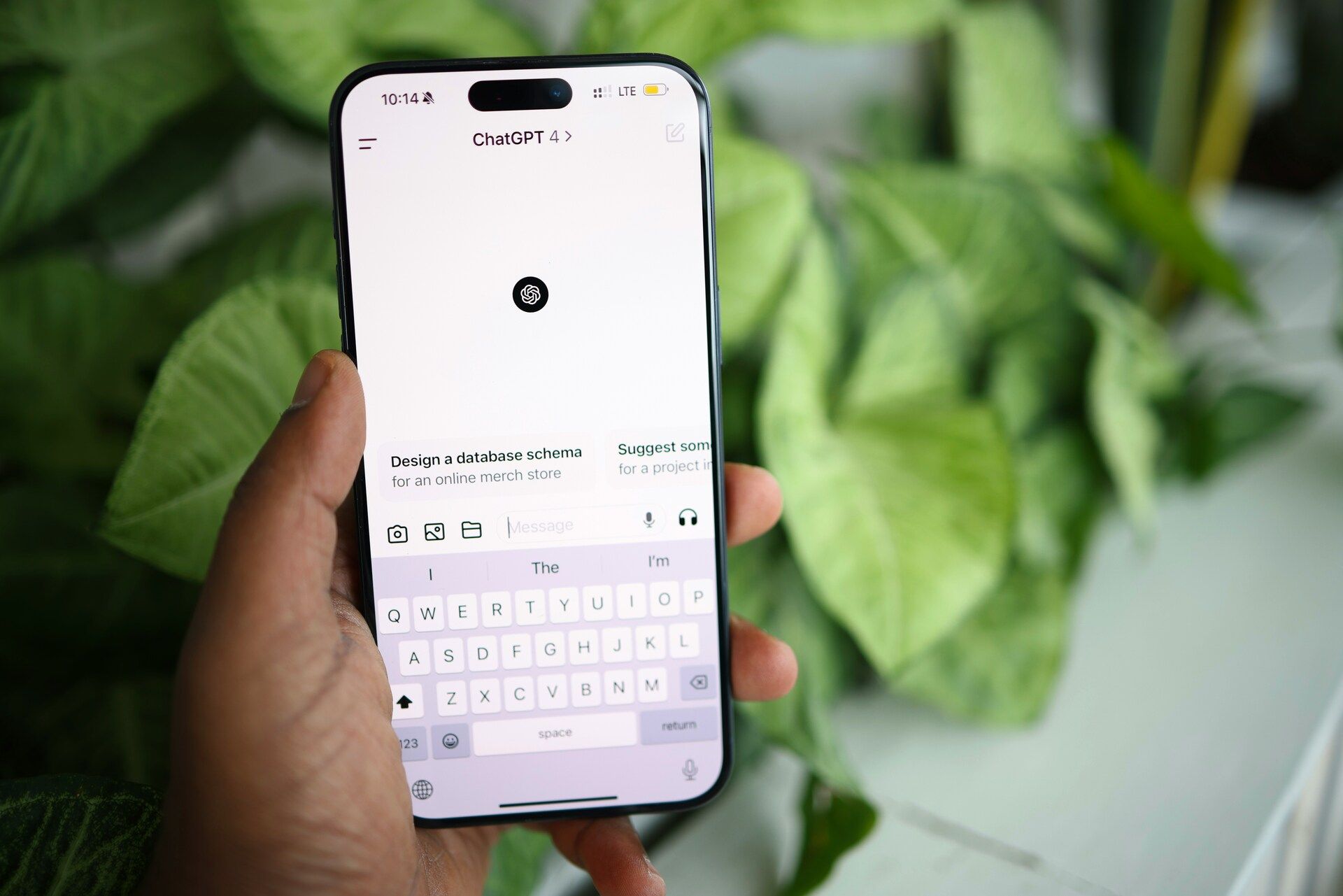- The Intersection
- Posts
- You could be using AI better.
You could be using AI better.
It's not all about AI. But also, how to show up in AI results, use it to make an impact, and much more.

A walk in the morning sun, wandering the city with an iced matcha in my hand and listening to a podcast = great mood and lots of ideas.
What’s your perfect morning? Today started early but calmly, without the usual intense humidity and heat in Toronto, or a rush to be somewhere specific.
This week’s edition of The Intersection is filled with upcoming training and events — behind the scenes, there’s been a lot of planning, so I’m excited to share these opportunities with you.
But if you keep scrolling, I’ve shared some recommendations to address how AI search has changed SEO and how we consume content, plus some common themes from the series I’ve been hosting. Let me know if you found it helpful!
As always, thanks for being here! Here we go.
I bet you can use AI better.
Teams are doing more with less. The fundraising landscape is shifting. Expectations from funders and stakeholders are rising, while resources and capacity aren’t.
In the middle of all this, AI has become a bigger part of the conversation.
For some, it feels exciting.
For others, it’s overwhelming.
For many, especially in the nonprofit space, it’s not clear how they can take full advantage.
The reality is, AI isn’t just about automation or cutting corners.
It’s about making space — for strategy, for creativity, for deeper connection.
AI can help your small team find values-aligned funders faster, pull insights from your donor data so you can focus on building relationships, not spreadsheets, and help you write that next appeal letter in your actual voice — instead of staring at a blank doc at 10 pm.
Ethical, thoughtful use of AI has real potential to reduce burnout and increase impact in this sector — if we learn to use it intentionally, rooted in mission, not hype.
So next month, we’re hosting a hands-on session for social-purpose leaders who want to use AI more without losing their values.
I’m pumped to be collaborating with Jazzmine Raine on 2-hour in-person workshops called AI for Impact: Ethically Leverage AI for Fundraising & Campaigns.
We’ll walk you through a clear, 3-phase approach to using AI as your research assistant, data analyst, and campaign co-creator — without compromising your values, your voice, or your mission.
You can find the details and links to register below.
PS If you’re not in the GTA but are interested in training on this, let me know.
Where do education and entrepreneurship intersect?
How can schools encourage more innovation?
I've had the opportunity to teach in higher education, speak at campus entrepreneurship programs, mentor founders and of course build ventures of my own.
There's a lot of untapped potential at the crossroads of higher education and entrepreneurship. Campuses often suffer from fragmented resources, short-term funding, or a fragmented curriculum that doesn't support every step of the journey.
Yet students and researchers have promising ideas that can create jobs, attract investment, and solve real-world problems.
How can we build more of the right support systems around them?
We'll discuss this and more at Building Innovation Hubs for Universities & Colleges — a live global session on July 24, hosted by Founder Institute.
As an Innovation Partner, I'm happy to be part of this session where we'll discuss infrastructure that scales, action-oriented curricula, sustainable funding stacks, global collaboration and more. Bianca Diosdado and Vincent Perez will be joining me, whose work spans tech, education, and economic development across the Americas.
If you’re in post-secondary education, innovation or entrepreneurship, or simply passionate about nurturing the next generation of innovators, I invite you to join us!
You can sign up for free to be part of this online event on July 24 now.
Come connect and talk community building and social impact
If you’re in Toronto and looking to connect, join me at the LinkedIn Local Meetup on Monday. This month’s theme is community building and social impact, along with personal branding. I’m happy to be speaking. There’s even an opportunity to share a quick tip, pitch your project, or ask a burning question. Tickets are available.
It’s always changing. There’s endless advice out there. So how should you actually show up online (beyond trends, templates, and "just post more" advice)?
I’ve put together a full-day, in-person training for founders, leaders and marketers who want to get intentional about their content and actually grow their audience, brand, or business.
It covers messaging, storytelling, and building a content system that works for you.
If you’ve ever said, “I know I should be posting more… but I don’t know what to say,” this is for you. Right now there’s a waitlist so the timing of this training works for you.
If you’re looking for more support with your social and content strategy, or are curious what this is all about, there’s some info for you right here.
And now for some learning that doesn’t require you to sign up for anything outside of this newsletter…
How do you optimize your content for AI-driven search results?
AI search is flipping content consumption.
There’s a shift happening from SEO to AEO and GEO.
Your next customer might never see your homepage — unless an AI assistant sends them there first.
I’ve spoken to people who’ve admitted that when searching on Google, they haven’t clicked past an AI summary in months.
Menlo Ventures’ fresh survey of 5,000 U.S. adults found that conversational answers are now the starting line for a majority of users. Only after skimming that blurb do they decide whether to dive deeper.
At the same time, Google’s new “AI Overviews” are siphoning off clicks — organic CTRs dropped by 34.5 percent in a recent Ahrefs study. That’s a gut-punch if you’ve spent years chasing page-one rankings.
And the scramble is on: even Adobe rolled out an “LLM Optimizer” so brands can see how (or if) their content shows up inside AI answers.
This is bigger than another algorithm update. Here’s why:
Zero-scroll answers are the new billboards. If your insight fits neatly into a 50-word summary, you win attention and credibility.
Authority beats personality (at first). Large Language Models quote the clearest, most-cited sources — so the structure and evidence behind your content suddenly matter as much as the story itself.
“Helpful content” is now literal. Models reward pages that answer related questions, cite sources and interlink like tiny knowledge graphs.
Quick wins you can try now:
Turn any of your existing how-to articles into Q&A sections. Wrap each answer in <strong> tags or FAQ schema so models spot them fast.
Add citations to external research and your own docs. LLMs look for supporting links to boost confidence scores.
Interlink ruthlessly. Think Wikipedia-style: every major term should point to a deeper resource on your site.
Audit headings for plain-language questions. “How does AI affect content consumption?” beats a clever, but vague, headline.
Track AI-origin traffic separately. Tools like Adobe’s LLM Optimizer (or simple UTM tags) show whether the tweaks move the needle.
Long-form content isn’t dead, it’s just downstream.
Common threads from my series for social purpose organizations
During the summer, while I’m not hosting The Good Growth Company’s 10 Things series, I took a moment to look back on what’s been covered.
From January through June, I hosted 17 fast-paced sessions, each focused on giving nonprofit teams ten practical tactics they could put to work. We’ve covered everything from volunteer engagement and event sponsorship to budgeting, cash-flow planning, and small-team fundraising.
Common threads kept popping up include the power of data-informed decision-making, the importance of storytelling that centres emotion, and the need to embed community care and strong internal systems so growth doesn’t come at the cost of burnout.
On top of the 17 sessions, I hosted a few special-edition conversations among these — deep dives on community-led development, building movements and stirring up “good trouble” online, and a timely look at what the latest State of Giving numbers mean for Canadian charities this year.
This year’s sessions have highlighted that sustainable impact comes from combining mission-driven passion with disciplined strategy, whether that means harnessing AI as a “helpful intern,” refining leadership transitions, or simply saying a confident “yes, and” to new opportunities.
If you missed any of the action, there’s a mid-year recap here, and you can sign up for fall sessions below.
Thanks for getting through this week’s edition of The Intersection!
I plan to be back to sharing a more focused, longer-form topic next time.
Got questions? Hate this format? Either way, happy to chat.
Have a great weekend!
- Daniel
